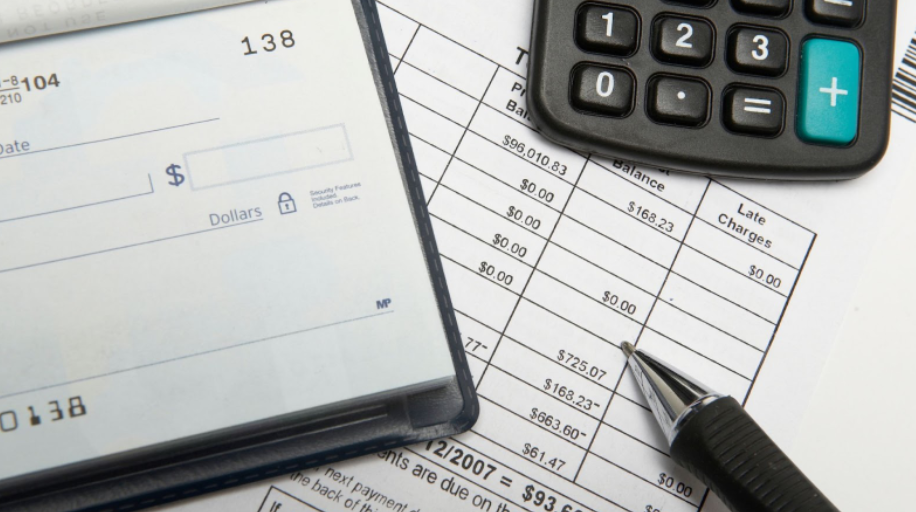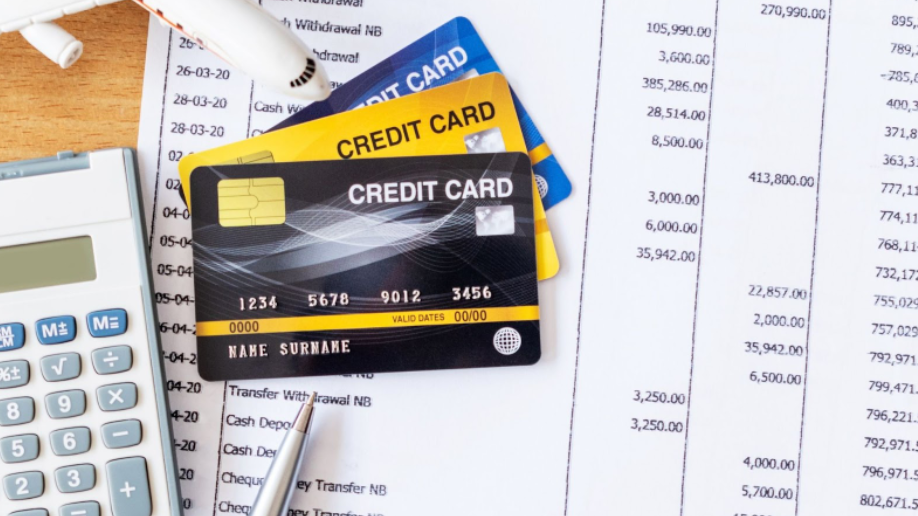Introduction to fake credit reports
Uncovering the truth behind fake credit reports is a daunting task, but one that lenders and financial institutions must face head-on. In an era where identity theft and fraudulent activities are on the rise, these fabricated reports pose a significant threat to both lenders and consumers alike. The consequences can be far-reaching, impacting everything from loan approvals to overall financial stability. Join us as we dive into this complex issue, exploring how fake credit reports affect lenders and financial institutions, the steps taken to combat them, and what individuals can do to protect themselves. So buckle up – it’s time to expose the dark side of credit reporting!
How do fake credit reports affect lenders?
Lenders play a critical role in the financial ecosystem, providing individuals and businesses with access to capital. However, fake credit reports can have a detrimental impact on lenders and their ability to assess creditworthiness accurately.
When evaluating loan applications, lenders heavily rely on credit reports to gauge an individual’s financial health and repayment ability. These reports contain information about an individual’s payment history, outstanding debts, and other relevant data. Unfortunately, if a credit report is fraudulent or contains false information, lenders may unknowingly approve loans to borrowers who are not actually creditworthy.
This can lead to significant losses for lenders as they may not recoup the amount lent due to default or non-payment by these borrowers. Moreover, it erodes trust in the lending industry as consumers become skeptical of the accuracy of credit reports provided by institutions.
In addition to financial implications for lenders themselves, fake credit reports also contribute to systemic risks within the broader financial system. If multiple lenders rely on inaccurate information when assessing borrower risk profiles, it can create a domino effect where bad loans accumulate across various institutions.
Furthermore, fake credit reports fuel fraudulent activities such as identity theft. Criminals may use stolen personal information or fabricate identities altogether when creating fake credit reports. This not only impacts lenders but also has severe consequences for individuals whose identities have been compromised.
To combat this growing issue, many lenders and financial institutions have implemented stringent verification processes when reviewing loan applications. They now cross-reference data from multiple sources and employ advanced fraud detection technologies that flag suspicious patterns or inconsistencies in applicants’ records.
Individuals involved in creating or using fake credit reports face serious legal consequences if caught engaging in fraudulent activities like forging documents or intentionally misrepresenting their financial standing. Penalties range from hefty fines to imprisonment depending on the severity of the offense.

Impact on financial institutions
Financial institutions, such as banks and lending companies, play a crucial role in the economy by providing loans and credit to individuals and businesses. However, the presence of fake credit reports can have a significant impact on their operations.
Fake credit reports create an environment of uncertainty for lenders. They rely heavily on credit scores and reports to assess the risk associated with lending money. If these reports are fraudulent or inaccurate, it becomes challenging for financial institutions to make informed decisions about loan approvals.
Moreover, fake credit reports can lead to financial losses for lenders. When they approve loans based on false information, there is a higher chance that borrowers may default on payments or engage in fraudulent activities. This not only affects the profitability of financial institutions but also erodes trust in their ability to accurately evaluate borrower creditworthiness.
Additionally, fake credit reports pose a threat to the overall stability of the financial system. If widespread fraud goes undetected within these institutions’ portfolios, it could result in systemic risks and potential economic downturns.
To mitigate these risks, financial institutions have implemented various strategies such as enhanced verification processes and stricter documentation requirements when evaluating loan applications. They also collaborate with regulatory bodies and credit reporting agencies to detect patterns of fraud more effectively.
The rise of identity theft and fraudulent activities
The rise of identity theft and fraudulent activities has become a growing concern for both individuals and financial institutions. With advancements in technology, criminals have found new ways to exploit unsuspecting victims and manipulate their personal information.
One of the most common forms of identity theft is the creation and use of fake credit reports. These reports provide false information about an individual’s credit history, making it seem like they have a good financial standing when in reality they may be deeply in debt or have a poor payment history.
This not only deceives lenders who rely on credit reports to assess an individual’s creditworthiness but also puts them at risk of providing loans or extending lines of credit to individuals who may default on payments.
Financial institutions bear the brunt of these fraudulent activities as well. They can suffer significant financial losses due to unpaid loans or defaulted payments, impacting their bottom line and potentially leading to higher interest rates for other customers.
To combat this rising threat, lenders and financial institutions have implemented stricter verification processes. They now closely scrutinize credit reports, cross-referencing information with multiple sources to ensure its authenticity. Additionally, they invest in advanced security measures such as encryption technologies and two-factor authentication systems to safeguard sensitive customer data.
Individuals involved in creating or using fake credit reports can face serious consequences if caught. This can include criminal charges, hefty fines, imprisonment, damage to personal reputation, and difficulty obtaining future loans or lines of credit legitimately.
To protect themselves from falling victim to identity theft or unknowingly becoming involved in fraudulent activities related to fake credit reports, consumers should take several preventative measures. These include regularly monitoring their own credit report for any suspicious activity or inaccuracies, keeping personal information secure by utilizing strong passwords and avoiding sharing sensitive details online unless necessary.

Consequences for individuals involved in creating or using fake credit reports
Consequences for individuals involved in creating or using fake credit reports can be severe and far-reaching. Those found guilty of engaging in such fraudulent activities may face legal repercussions. This could include fines, probation, or even imprisonment depending on the severity of the offense.
In addition to legal consequences, individuals involved in fake credit report schemes will likely face damage to their personal reputation and credibility. Once their actions are exposed, it becomes challenging for them to regain trust from lenders and financial institutions.
Furthermore, individuals who create or use fake credit reports may find themselves blacklisted by reputable lenders and financial institutions. This means they will have a difficult time securing loans or obtaining favorable interest rates on future applications.
Moreover, these individuals risk damaging their own financial well-being in the long run. Fake credit reports can lead them into a cycle of debt as they take out loans based on false information that they may struggle to repay.
It is important to note that involvement with fake credit reports also perpetuates a system of fraud and deceit that harms innocent consumers who rely on accurate reporting when making financial decisions. So not only do the individuals responsible bear personal consequences but society as a whole suffers too.
Engaging in creating or using fake credit reports can have severe consequences both legally and financially for those involved. It is crucial for individuals to understand the gravity of this crime and its impact on themselves as well as others before considering such actions
Prevention tips for consumers
- Monitor your credit regularly: Stay vigilant by checking your credit reports from all three major credit bureaus at least once a year. Look out for any suspicious activity or inaccuracies that may indicate the presence of a fake credit report.
2. Protect your personal information: Safeguard sensitive data such as social security numbers, bank account details, and passwords. Be cautious about sharing this information online or with anyone you don’t trust.
3. Be wary of phishing scams: Fraudsters often use phishing emails and fraudulent websites to trick consumers into providing their personal information. Verify the authenticity of emails and websites before entering any sensitive data.
4. Use strong passwords: Create unique and complex passwords for all your online accounts, including banking and financial platforms. Consider using password managers to securely store your login credentials.
5. Secure Wi-Fi connections: When accessing financial services or submitting personal information online, ensure you’re connected to a secure network. Avoid conducting sensitive transactions on public Wi-Fi networks that may be susceptible to hacking.
Remember, being proactive is key when it comes to protecting yourself from fake credit reports! By following these prevention tips, you can help safeguard against potential threats and maintain control over your financial well-being.
Conclusion
In today’s digital landscape, fake credit reports pose significant risks to lenders and financial institutions, eroding trust and impacting financial stability. To counter this threat, robust verification processes and collaboration with regulators are crucial. Perpetrators face severe legal consequences, including fines and reputational damage. Consumers can protect themselves by monitoring their credit reports regularly and practicing secure online habits. With proactive measures and industry cooperation, we can build a more resilient financial ecosystem rooted in trust and transparency.
